Paid to spend two months in bed
- Published
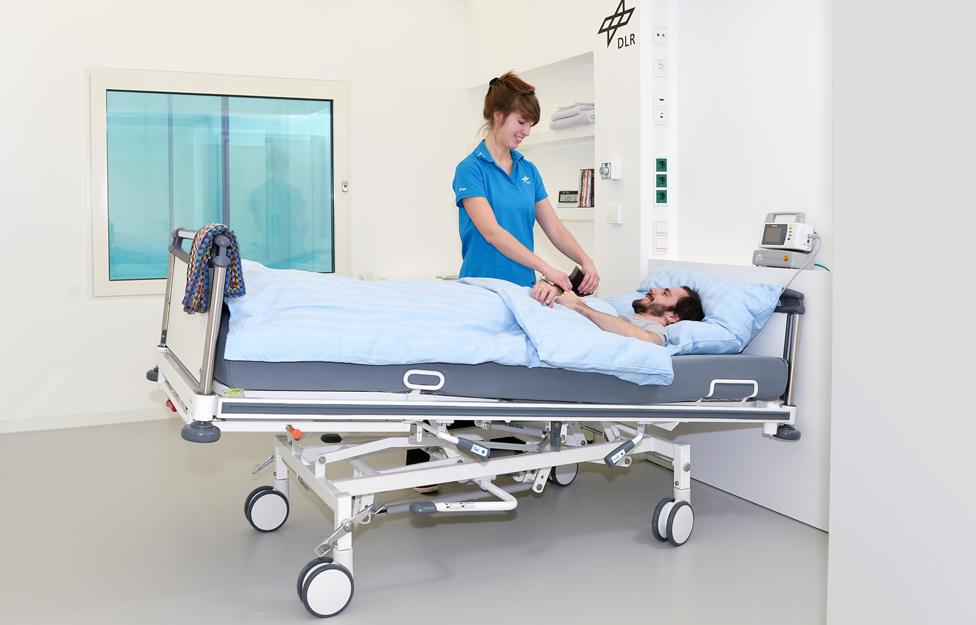
Space travel has a major impact on the human body, so in order to help scientists work out what this means for astronauts' health, a lab in Germany is getting people to spend two months lying in bed.
Envihab looks like a building from the future. Possibly one of those dystopian futures where everything looks shiny on the outside but something deeply sinister is going on within.
As it happens, this new facility resembles an enormous gleaming white Lego block, but most of it is indeed beneath the surface.
My guide, nutritional scientist Petra, leads me through the windowless entrance tunnel - the walls lit with an eerie green glow. You can imagine Dr Who running down this corridor, pursued by a Dalek.
Inside, every wall, floor and ceiling is smooth and white, there are no windows, plants or pictures, and I can't help noticing, just like on the Daleks' home world of Skaro, there are no handles on the doors.
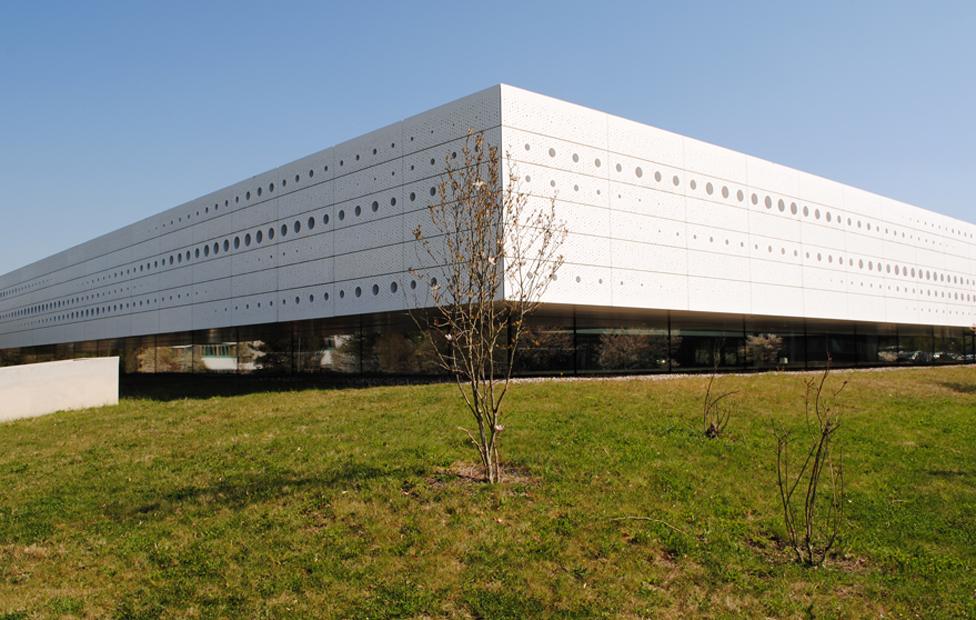
It's otherworldly and disorientating. But this feeling of being adrift in a space station or maybe inside a habitat on a distant alien world is deliberate. Envihab is designed so doctors, scientists and engineers can investigate the effects of space travel - the isolation, physical and psychological impact of living life beyond the Earth.
Petra touches a card against a concealed pad to open a hidden set of doors. They swing apart with just the faintest whirr and we enter what looks like a hospital ward. There is a nurses' station, medical equipment and a long, white, windowless corridor lined with bedrooms.
These rooms aren't for sick patients - instead they're occupied by 12 perfectly healthy volunteers paid to lie in bed for two months in the interests of science. Known as a bed rest study, this experiment is designed to simulate the long-term effects of weightlessness.

Find out more
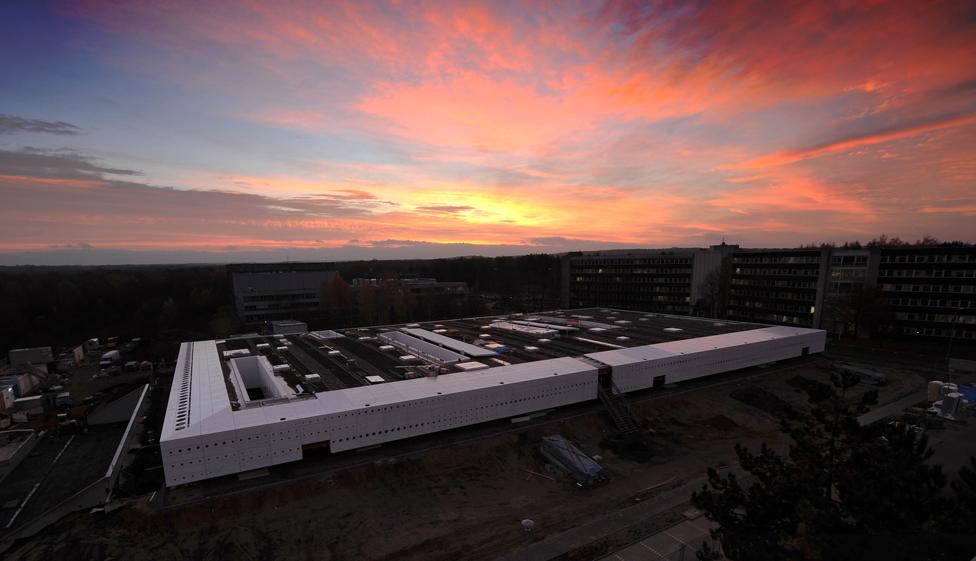
From Our Own Correspondent has insight and analysis from BBC journalists, correspondents and writers from around the world
Listen on iPlayer, get the podcast or listen on the BBC World Service or on Radio 4 on Saturdays at 11:30

Living in space for more than a few days is seriously bad for your health. Muscles and bones waste away, and bodily fluids pool in the head giving astronauts bloated faces and the feeling of a constant head cold - even the immune system and eyesight are affected.
US astronaut Scott Kelly and Russian cosmonaut Mikhail Kornienko are currently nine months into a year-long stay on the International Space Station to investigate the challenges of long duration missions. A flight to Mars and back would take at least 18 months.
The aim of the bed rest experiment in Envihab is to conduct a similar study to the one taking place in orbit. But lying in bed for 24 hours a day for 60 days is not as easy or enjoyable as you might imagine.
For a start, there isn't any luxury bedding or nice fluffy pillows. The volunteers have to lie in single hospital beds, tilted so their heads are tipped towards the floor. CCTV cameras are used to monitor them in case they try to sit up.
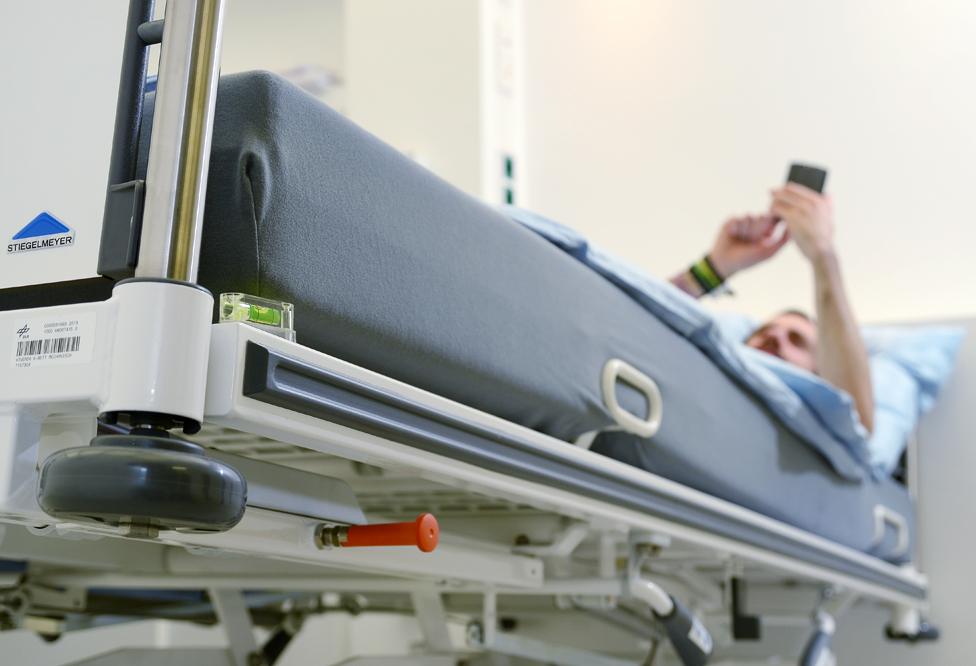
When I meet him, Christian is 40 days into the experiment - although you can hardly tell from his room. There are few personal effects or pictures. He can watch TV and has a phone, laptop and internet and says he can even occasionally glimpse the sun through a frosted glass skylight.
In the outside world he's a freelance IT consultant and he describes the experiment as a "holiday from everyday living". There is clearly a complete disconnect between my idea of a holiday and his.
Christian says he joined the study because he was interested in science and excited by the prospect of long-duration human spaceflight. Well, so am I, but as we talk I simply can't get my head round the idea of spending more than a few hours in this sterile air-conditioned underground silo.
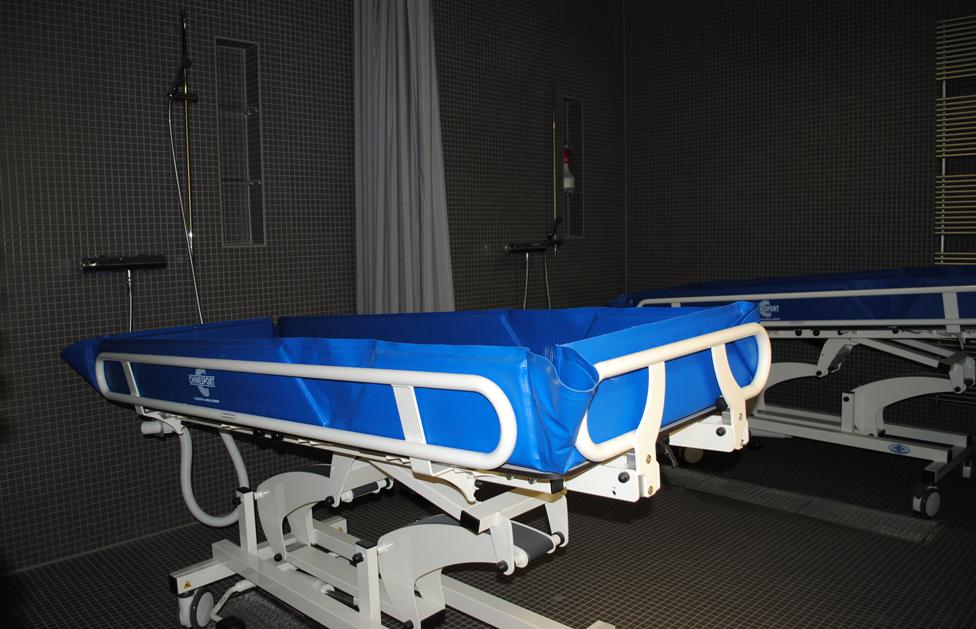
A waterproof bed in the showering facility at Envihab
Everything is done lying down - going to the toilet involves bedpans and flasks and the volunteers even have to shower horizontally on a special waterproof bed. As for the food, Christian describes it, damningly, as "very healthy".
On the International Space Station, astronauts have to spend at least an hour and a half every day exercising to try to maintain bone and muscle. On Earth Christian also gets to exercise, jumping and hopping - while lying down, using a specially designed exercise bed.
The results of the bed rest study won't only be used to help future astronauts. They should make life easier for patients facing long stays in hospital too. Space research into bone and muscle loss is already benefiting people suffering from conditions such as osteoporosis.
I ask Christian what he is looking forward to most when he leaves. "Taking some very deep breaths," he says. Which is exactly what I do when I return a few minutes later to the fresh air of the outside world.
Life in space is definitely not for me.
Subscribe to the BBC News Magazine's email newsletter to get articles sent to your inbox.